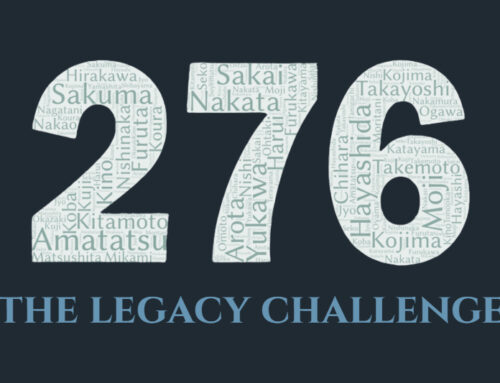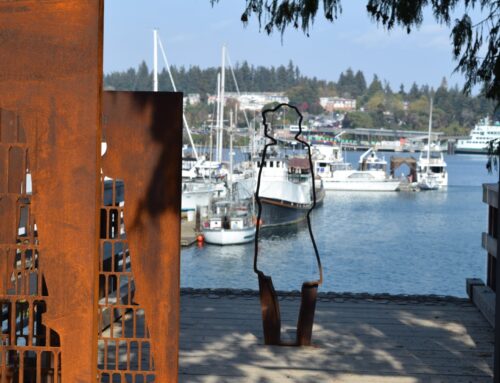For Immediate Release: June 3, 2025
Media Contacts:
Asian Law Caucus, [email protected]
Japanese American Citizens League, [email protected]
Asian Americans Advancing Justice | AAJC, [email protected]
Over 60 Organizations File Amicus Urging Courts to Heed Lessons of Japanese American Incarceration
Centering the Stories of Japanese American Families Targeted by the Alien Enemies Act, Brief Argues Courts Must Be Independent Checks on Executive Overreach – Or Risk Grave Injustice
SAN FRANCISCO – In March, President Trump issued an executive order invoking the Alien Enemies Act, a 1798 wartime law, against any Venezuelan national as young as 14 who the administration claims is a member of the Tren de Aragua gang. In the months since, every judge except one in cases challenging the executive order has found the Trump administration’s use of the Act to deport individuals without due process to be illegal. When the United States last used the Act in World War II, it began an escalation that culminated in the highest court choosing to blindly defer to unsubstantiated claims from the executive branch. Everyday people paid the price, losing their families, jobs, homes, and fundamental freedoms.
As the U.S. Court of Appeals for the Fifth Circuit considers the case against Trump’s executive order invoking the Alien Enemies Act, the Asian Law Caucus, Asian Americans Advancing Justice – AAJC (Advancing Justice – AAJC), and Fred T. Korematsu Center for Law and Equality have filed an amicus brief asking the court to fulfill its role and duty as an arbiter of constitutional law and ensure robust judicial review of executive actions and orders. The brief is filed on behalf of the Japanese American Citizens League (JACL) and more than 60 Japanese American and Asian American organizations who are committed to sharing this history of the sweeping incarceration of Japanese American communities in order to prevent grave injustices today.
“Our fates as Japanese Americans are one and the same as those of Venezuelan Americans, and by sharing our stories, however painful, we send an enduring message of solidarity and commitment to justice that cannot be weakened by presidential fiat,” said David Inoue, executive director of the Japanese American Citizens League. “For nearly 40 years after the war, Japanese Americans lived under the pretense that our mass incarceration was necessary for national security. We cannot allow similarly false invocations of national security to once again strip an entire community of their right to due process.”
“Over nearly 40 years, my great-grandfather, Juro Shiga, built a thriving sweater-knitting business in Seattle and raised five American-born children to adulthood as a widower. Then, in January 1942, two FBI agents arrested him as an Enemy Alien in front of his family,” said Carl Takei, who leads the Asian Law Caucus’ community safety and civil liberties program. “Juro did not live to see the end of war, but his legacy lives on in the hearts and voices of every family uniting right now to keep their loved ones together and do whatever they can to create a better life for the next generation. The courts must heed these lessons and demand the government come forward with convincing evidence, not just allegations, to support its invocation of this wartime power. My son, Juro’s great-great-grandchild, deserves nothing less.”
Civil Liberties Nightmare Inflicted on Japanese Americans During WWII Offers Critical Lessons for Nation and Courts
In 1983, the Asian Law Caucus was part of a multi-team effort to clear the conviction records of Japanese American dissenters Fred Korematsu, Minoru Yasui and Gordon Hirabayashi. Their coram nobis legal teams revealed how the government deliberately suppressed, altered, and destroyed evidence that contradicted its claims about Japanese Americans during WWII.
Today’s amicus brief builds on that legacy of truth-telling. Among its key arguments, the brief asserts:
- “As in WWII, the government’s current invocation of the Alien Enemies Act is tainted by false justifications and suppression of truthful information…If the court chooses to turn a blind eye to these false justifications and attempted coverups, it will leave the door open to even greater abuses of power in the future.”
- “As in WWII, the current implementation of the Alien Enemies Act raises serious due process and equal protection concerns…In the only case so far to have tested the individual allegations against an alleged Alien Enemy, the Western District of Texas excoriated the government for its ‘shoddy affidavits and contradictory testimony,’ [and] found that the government was ‘going off of nearly nothing, to substantiate their mammoth claims.’”
- “This pattern of targeting individuals without adequate evidence, resisting judicial review, and making public assertions that contradict internal assessments echoes the government’s conduct during the Japanese American incarceration. It underscores the need for meaningful judicial scrutiny of the government’s invocation and implementation of the Act.”
“Most Americans don’t know that the U.S. imprisoned over 120,000 Japanese Americans without trial or the right to an attorney —and that the Supreme Court upheld these deprivations of civil rights based on government lies and secret misconduct,” said Dale Minami, who was part of the legal team to reopen Mr. Korematsu’s case. “The government suppressed, altered, and destroyed evidence to justify the wartime banishment and incarceration but Fred Korematsu and two others’ convictions were overturned because the facts of the misconduct were finally proven in courts and made public —decades later. The courts can now choose a different path – one that upholds its role in our constitutional democracy and values truth over unfettered power.”
“Stop repeating history! Japanese Americans will tell you we’ve seen this movie before—when U.S. citizens and lawful residents were demonized by bogus claims, snatched off the streets and from their homes for no offense, and locked-up without charges, evidence, or hearing,” said Don Tamaki, another member of Mr. Korematsu’s coram nobis legal team. “Fred Korematsu asked the question we should all be asking now: ‘Am I an American or am I not?'”
Japanese Americans’ Stories Illustrate Profound Human Cost When Executive Branch Seeks Limitless Power & Courts Abdicate Role
At the heart of the amicus brief are the stories from Japanese American families who built lives in the U.S. and contributed to their communities until they were suddenly branded as enemies based on their national origin and flimsy evidence that was never tested by courts.
JACL and its members have long worked to defend civil rights by collecting and sharing family stories to help more people learn from our collective history. Many of these stories, including direct descendants’ memories, are on the JACL website. Three of these are featured in the amicus brief:
- Natsu Saito: On December 9, 1941, Mrs. Saito was a 43-year-old widow with four children and had been a legal resident of the U.S. for 25 years. On that day, she was arrested in Aberdeen, Washington, by FBI and local police officers. Her two youngest children returned home from school to discover their mother missing and FBI agents ransacking their home and the small shop that Mrs. Saito owned. In 1942, the Hearing Board recommended Mrs. Saito be released, but shortly after arriving home months later, Mrs. Saito and her children were ordered to leave under Executive Order 9066. Under armed guard, the family boarded a train with blacked-out windows, headed to the Tule Lake War Relocation Center.
- Kunitomo Mayeda: Shortly after Pearl Harbor, Mr. Mayeda’s son Al enlisted in the U.S. Army and Mr. Mayeda signed a patriotic oath along with other immigrants to “pledge our resources, our children and our lives toward a victorious conclusion of the war upon the Axis nations.” Nevertheless, the FBI arrested Mr. Mayeda on March 19, 1942, while his younger son Ray was at school. Mr. Mayeda was transferred through a series of detention centers, including Tuna Canyon, and ultimately confined in Santa Fe, New Mexico. Mr. Mayeda’s son Ray was also separated from his family and incarcerated. The Mayedas lost their home, livelihood, and precious years they would never recover.
- Junichi Oda: Junichi Oda came to the U.S. in 1917. Eventually, he married a Japanese American citizen, Maki “Lorraine” from Watsonville, California. Lorraine was stripped of her American citizenship when she married Junichi. Junichi worked hard and became the head of the abalone processing cooperative on Fisherman’s Wharf in Monterey. On July 8, 1942, Junichi was arrested by two FBI agents under the Alien Enemies Act and sent to different detention centers. Lorraine was incarcerated later and sent to Poston, Arizona. Eventually, Lorraine and Junichi reunited in Crystal City in 1944. Their son Larry, who is now president of the Japanese American Citizens League, was born behind barbed wire in Crystal City.
“The President’s effort to use the Alien Enemies Act against Venezuelan Americans echoes the last invocation against Japanese Americans over 80 years ago. Just like in 1941, it targets an entire group of people on the basis of their national origin and without affording them due process. It upended the lives of tens of thousands of Japanese Americans, and it ultimately led to the incarceration of over 120,000 Japanese Americans,” said Noah Baron, Assistant Director of Litigation at Advancing Justice – AAJC. “Our courts should not allow us to follow a similar trajectory today. It is critical to continue telling the stories of Japanese Americans in the face of the President’s grab for unchecked power. Forgetting our nation’s dark history puts us at risk of repeating it. We urge the court to rule on the side of constitutional rights and hold the executive branch accountable.”
On December 7, 1941, my great-grandfather, Jotaro Mori, went fishing. Like others in his neighborhood in Tacoma, Washington, this was a way to nourish the impoverished Japanese American community,” said Naoko Fujii, Chair of the Civil Rights Committee for the JACL San Jose Chapter. “When Jotaro returned home from the long day, the FBI was waiting. Without providing any reason, they took him to the Tacoma City jail, without the opportunity to call his family or access an attorney. Jotaro had been living in America for 41 years, owned a laundry business, and raised three daughters. For the next four years, Jotaro was incarcerated in several detention centers and camps, including the army-run Lordsburg Internment Camp located in the New Mexico desert, the only one specifically built to house enemy aliens.We know clearly the nightmares that reverberate across communities, citizens and non-citizens, when the government is allowed to claim guilt without evidence.”
“We reopened Fred Korematsu, Minoru Yasui and Gordon Hirabayashi’s coram nobis cases with community leaders and local organizations like the Asian Law Caucus and others to bring truth to our justice system, families, and to all Americans,” said Peggy Nagae, who was a member of the coram nobis legal team reopening Minoru Yasui’s case. “Today, we stand firm and in solidarity with every community facing the threat of family separation based on flimsy pretext and unproven allegations. The courts must rule through truth and constitutional rights, nothing less.”
Read the full amicus brief, including a list of all 63 signatories.


